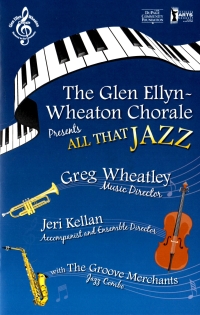Buy an Artist a Coffee!
It seems that there is a special day for just about everything these days! On top of the usual—birthdays, anniversaries, and the like—we have things like National Popcorn Popping Month, World Smile Day, National Pig Day, and If Pets Had Thumbs Day (I'm not making that up!). If you're the fun-loving type, these are just crazy excuses to celebrate! If you're the cynical type, some of them could be ways for greeting card companies to generate revenue (though it's hard to see National Pig Day catching on).
Well, here's one I think is well worth celebrating. October is National Arts and Humanities Month. In honor of the occasion, here is a list of 10 things you could do to celebrate the place of the arts in our lives:
1) Take half a day and go to the Art Insitute. Browse around and find some of those famous paintings you've always heard about and seen in books.
2) Turn off talk radio in your car and listen to a symphony, or a choral work.
3) See the banner on the right side of this web page to learn more about Wintersong, the Glen Ellyn-Wheaton Chorale's 2013 Christmas concert.
4) Take time to finally read one of those books you were supposed to have read in Great Books in college. You know the ones: Les Misérables (even if you have seen the movie), or War and Peace (OK, that one is long!).
5) Buy a musician a coffee.
6) Ask a member of the Glen Ellyn-Wheaton Chorale to talk to you about Wintersong.
7) Ask a member of the Glen Ellyn-Wheaton Chorale to sell you a ticket to Wintersong.
8) Dig out that trumpet that's been in storage since your high school graduation. See if you can remember any of the fingerings, and if you're really brave, try to blow that trumpet.
9) Go to our Facebook page (www.facebook.org/gewchorale) and "like" us.
10) Whatever you do, mark December 6 or 7 on your calendar as the dates for Wintersong.
Please feel free to pass this on to others—and we do hope to see you at Wintersong!
Greg Wheatley
Music Director, Glen Ellyn-Wheaton Chorale
 In the words of Irving Mills, "It don't mean a thing if it ain't got that swing." That simple, if exaggerated, sentiment might well sum up what the musical genre of jazz is all about. There's something infectious about hearing Take Five or I Got Rhythm—that indefinable something that makes you want to tap a toe or snap a finger.
In the words of Irving Mills, "It don't mean a thing if it ain't got that swing." That simple, if exaggerated, sentiment might well sum up what the musical genre of jazz is all about. There's something infectious about hearing Take Five or I Got Rhythm—that indefinable something that makes you want to tap a toe or snap a finger.